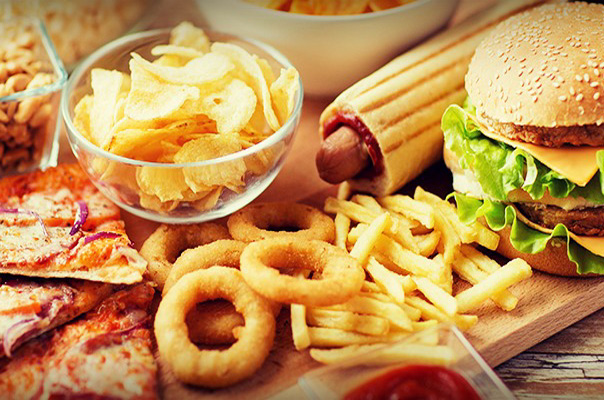A high-fat meal can silence communication between the intestine and the rest of the body, according to a new study on zebrafish conducted by researchers at Duke University.
The goal of the Duke researchers was to examine the enteroendocrine cells that normally tell the brain and the rest of the body what’s going on inside the gut after a meal. The team discovered that a high-fat meal “completely shut down” that communication for a few hours.
This is an important finding as these cells produce at least 15 different hormones to send signals to the rest of the body. These hormone-signals include gut movement, feelings of fullness, digestion, nutrient absorption, insulin sensitivity and energy storage.
Body reacts dramatically to high-fat junk food meals
Though researchers note they still have much to decipher with regards to this “switch off” reaction, it is additional evidence of the dramatic effect high-fat meals have on the body.
As discussed in one of our earlier articles, it is already well-established that high-fat meals rob energy from the body as enzymatic activity is prioritized for digestion. Hence, the feeling of sleepiness after a big meal.
And now this new research shows that messaging between the gut and the rest of the body—especially with regards to hormones–is also retarded.
Clearly we do not yet know all the complex ways a high-fat meal can affect us.
“This is a previously unappreciated part of the postprandial (after-meal) cycle,” said John Rawls, an associate professor of molecular genetics and microbiology in the Duke School of Medicine.
“If this happens every time we eat an unhealthy, high-fat meal, it might cause a change in insulin signaling, which could in turn contribute to the development of insulin resistance and Type 2 diabetes,” Rawls said.
Junk food cravings cycle
Though this research is preliminary and follow-up research in humans will be needed, the researchers noted that this reaction to high-fat meals sheds a light on the catch-22 cycle that eating junk food causes.
Since enteroendocrine cells are key players in digestion, the feeling of being full, and subsequent eating behavior, this “switching off” reaction may be the very mechanism that somehow causes people eating a high-fat diet to eat even more.
One way to avoid this response is to include raw foods with every meal.
We already know the enzymes in raw foods help with digestion and metabolism. And now, thanks to this new research, we know cutting down on the processed fats in a meal is critical for protecting the body’s hormone-messaging system.
Nutritional supplements can help
Supplements that can help improve digestion and assimilation include products like Optimal Digestion from Optimal Health Systems.
Optimal Digestion is designed to be taken with meals and includes all the enzymes necessary to better digest fats, proteins and carbohydrates. It also contains digestion-promoting herbs and minerals.
Between meals reach for Optimal Fat-Sugar-Trim.
With tumeric, garlic and lipase enzymes, Optimal Fat-Sugar-Trim will help your body metabolize fats and sugar into energy—a better option than storing them as unwanted body fat!
– – –
Sources: ScienceDaily.com, Duke University School of Medicine.



